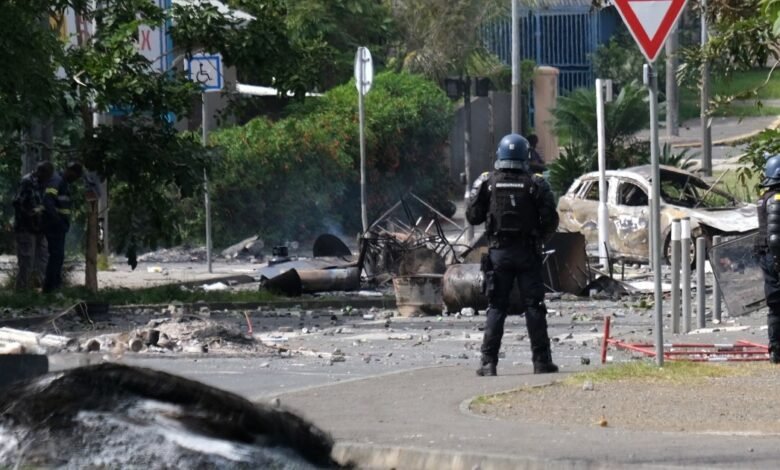France supports controversial electoral changes in New Caledonia amid ongoing unrest | Politics News

The plan to expand the electoral roll is approved at a time when New Caledonia is rocked by the worst unrest in more than 30 years.
France adopted controversial reforms to New Caledonia’s voting rules, which led to the worst unrest in the Pacific territory in more than 30 years.
New Caledonia’s administration said more than 130 people were arrested in the riots, which began on Monday night with cars and buildings set on fire and shops looted.
“Serious disturbances” were continuing, the High Commission of the Republic in New Caledonia said in a statement on Wednesday morning, adding that the nighttime curfew and ban on public gatherings would remain in force.
An attempt to escape from prison was also foiled, he added.
Anger has been simmering for weeks around Paris’ plans to amend the Constitution to allow more people to vote in New Caledonia’s provincial elections. Critics say the measure would marginalize the indigenous Kanak people, who make up about 40 percent of the population, by allowing more recently arrived Europeans to vote.
France says the rules must be changed to support democracy on the island.
The National Assembly in Paris adopted the measure after a long debate shortly after midnight, by 351 votes to 153.
Subsequently, French President Emmanuel Macron appealed to the representatives of New Caledonia, in a letter, to “unequivocally condemn all this violence” and “call for calm”, reported the AFP news agency.
A joint session of the National Assembly and the Senate is necessary for the new rules to come into force because they represent a constitutional change.
Long-lasting problems
New Caledonia, which has a population of almost 300,000 people, lies between Australia and Fiji and is one of France’s largest overseas territories.
Some 17,000 kilometers from Paris, the territory is a key part of France’s claim as a Pacific power, but the Kanak people have long chafed under Paris’s rule.
Denise Fisher, former Australian consul general in New Caledonia, said she was not surprised by the violence in recent days and told Al Jazeera that it showed “a real and fundamental breakdown in the way the territory is being managed”.
The voting rules are part of the so-called 1998 Noumea Agreement.
Under the terms of the agreement, France agreed to cede more political power to the territory and to limit voting in New Caledonia’s provincial and legislative elections to those residing on the island at the time.
Around 40,000 French citizens have moved to New Caledonia since 1998, and the changes expand the electoral roll to include those who have lived in the territory for 10 years.
The Noumea Agreement also included a series of three independence referendums, the last of which took place in December 2021, at the height of the COVID-19 pandemic. Pro-independence groups boycotted the vote, which supported remaining in France, and rejected the result.
They are asking for a new vote.
On Wednesday, the main pro-independence Kanak Socialist National Liberation Front (FLNKS) called for calm and condemned the violence, calling on protesters in a statement to return home.
Socio-economic marginalization, land expropriation and disenfranchisement of the Kanaks have long been a source of violent civil unrest in New Caledonia.
In a 1987 referendum, independence supporters, angered by the fact that the territory’s recent residents had been given the right to vote, also led a boycott. The overwhelming vote in favor of remaining in France led to violent protests and, ultimately, the 1988 Matignon Agreement, aimed at rectifying inequality, and the Noumea Agreement, with its vision of “shared sovereignty”.
“The concerns run deep,” Fisher said.




